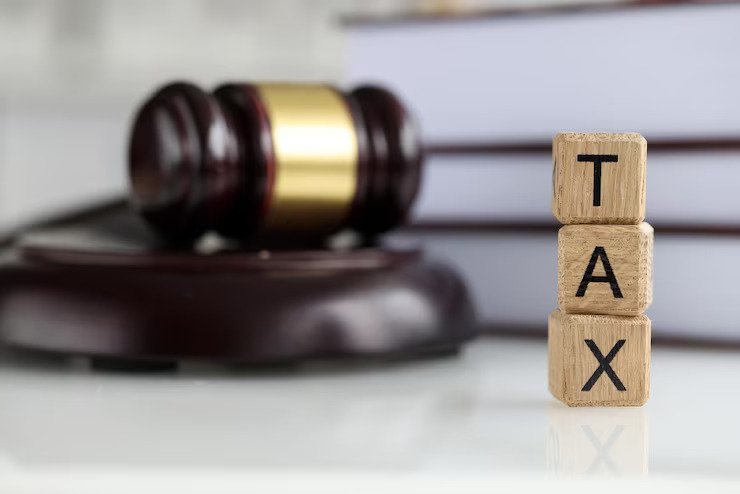The Harsh Reality Of Tax Evasion Penalties: Are You Prepared For The Consequences?

Tax evasion is a grave offense that can result in severe punishment such as heavy fines, imprisonment, or loss of personal and business assets. People and institutions sometimes try to evade taxes either because they are unaware or because they want to avoid paying their rightful share of taxes. However, the penalties for tax evasion can rapidly escalate and cause significant financial and legal problems that may take years to resolve.
According to the Internal Revenue Service (IRS), tax evasion is defined as the willful failure to pay taxes that are owed. The penalties for tax evasion can vary depending on a range of factors, including the amount of taxes owed, the length of time that the taxes have gone unpaid, and the degree of willfulness involved.
For individuals, the penalties for tax evasion can be particularly severe, with fines of up to $100,000 and a maximum prison sentence of five years for each count of evasion. Moreover, businesses that engage in tax evasion may face even steeper penalties, including the suspension or revocation of their business license, the forfeiture of assets, and a permanent ban on doing business in the United States.
In this article, we will explore the harsh reality of tax evasion penalties and why it is essential to take these consequences seriously.
We will examine the various penalties that can result from tax evasion, the strategies that the IRS uses to catch tax evaders, and the steps that you can take to protect yourself from these penalties. Whether you are an individual taxpayer or a business owner, it is crucial to understand the potential risks and consequences of tax evasion and to take the necessary steps to ensure compliance with all tax laws and regulations.
What Is Tax Evasion?
To appreciate the gravity of tax avoidance, we need to elucidate what it comprises. To put it simply, tax evasion is the act of refraining from paying taxes by deliberately hiding or misinterpreting one’s financial situation in order to be obligated to pay less than is required. Shirking off taxes may include the use of illegitimate methods to lower taxes, such as lying on forms, not documenting appropriate profits, or asserting rights to which one is not applicable.
Penalties For Tax Evasion
Tax evasion is a serious offense that can result in significant penalties and ramifications. The consequences of failing to pay taxes can impact every area of your life, from your financial stability to your personal reputation.
Below we discuss some of the stern penalties for tax evasion:
1. Financial Penalties
The financial penalties associated with tax evasion can be staggering. In addition to having to pay back taxes, you could face steep fines, interest charges on overdue amounts, and even additional fees for filing inaccurate returns. The financial toll of tax evasion can be so high that it can put a serious dent in your personal finances long after the initial offense.
2. Jail Time
Tax evasion, depending on the severity of the case, can also result in imprisonment. If found guilty, you could spend time in jail, with sentences ranging from a few months to several years. A criminal record relating to tax evasion can also follow you for the rest of your life, impacting your employability, credit score, and overall financial stability.
3. Loss of License
Tax evasion penalties can have a severe impact on your profession, especially if you’re self-employed or a licensed professional. It is common for businesses or individuals engaged in professional practices to require licenses or certifications to operate legally in their state. A tax evasion conviction could lead to the revocation of your license or certification, prohibiting you from earning a living from your occupation or profession.
4. Seized Property and Assets
If you fail to pay your taxes, the IRS has the power to seize your assets and property to recover the unpaid amounts. You may lose ownership of your home, bank accounts, vehicles, or valuable personal property.
5. Loss of Reputation
Tax evasion is a vital business and political issue. The adverse impact of tax evasion on an individual’s reputation can be significant. It can destroy the trust that potential clients or customers have in your business and harm your personal brand.
Final Thoughts
Tax evasion is a risky and illegal practice that can result in devastating financial, professional, and personal consequences. As a responsible citizen, you should ensure that you pay your taxes on time. If you feel unsure of how to file your taxes or have any doubts about your tax obligations, consider seeking professional help from a tax consultant or an attorney. Remember, the harsh reality of tax evasion penalties can adversely impact your life even after serving your sentence. It is better to stay clear of any such wrongdoing and pay your dues as a responsible taxpayer.
To avoid tax evasion penalties, ask for professional help from tax consultants like Ideal Tax. They can help you create a plan to maximize your deductions and simplify the filing process. With their expertise, they can help reduce the risk of getting penalized by the IRS or other government agencies for tax evasion. Not only that, but they also provide regular updates on tax laws that could affect you and advice on how to save money while still following all legal requirements. With Ideal Tax Solutions, you can rest assured that your taxes will be filed correctly and accurately.
Hiring a professional tax consultant can help save you headaches and money in the long run. Don’t take any chances with your business or finances; take advantage of all the resources available to ensure you stay compliant with tax laws and regulations.
Read Also:


























Leave A Reply